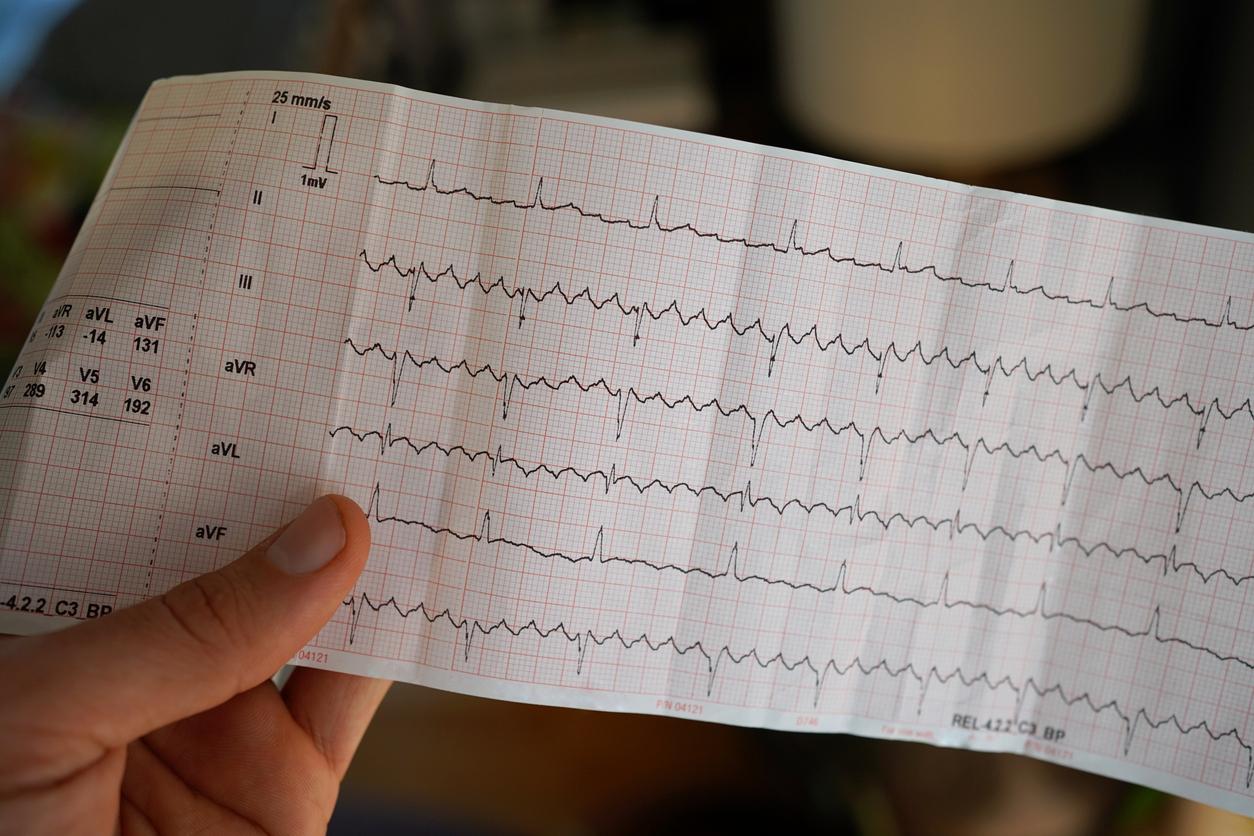
October 26, 2007 – Fish oils sold as supplements would not protect against arrhythmia, but they would reduce the risk of dying from a cardiovascular disorder by 21%.
This is the conclusion drawn by a doctor researcher from the University of Alberta, Hernando Leon, who analyzed a dozen studies on the subject. He presented his results at the 2007 Canadian Congress on Cardiovascular Health, held in Quebec City.
Although he considers omega-3 supplements to be ineffective against arrhythmia, Hernando Leon says that the fish itself helps prevent certain cardiovascular disorders. “Omega-3 fatty acids have benefits and it is still important to include fish in your diet at least two or three times a week,” he says.
However, its arrhythmia data is controversial, as is the way the results have been presented.
|
Cardiac arrhythmia |
April Fools “?
“I find it irresponsible to have indicated that the effect of omega-3 on arrhythmia constitutes an April Fool’s Day”1, deplores the Dr Anil Nigam, from the Montreal Heart Institute.
On the one hand, this indicates that the studies published so far show – on the contrary – that omega-3s have anti-arrhythmic properties. “This single meta-analysis – which has not yet been published in a scientific journal – does not have the same scientific weight as all the scientific literature which has been published on the subject for 30 years”, argues the cardiologist.
On the other hand, pharmacist Jean-Yves Dionne considers “dishonest” to have focused on the ineffectiveness of fish oil supplements against arrhythmia, rather than on reducing the death rate from cardiovascular disease. .
“No drug leads to a 21% reduction in the death rate, but we wanted to draw attention to the negative aspect, as if we wanted to undermine the benefits of fish oils,” he said indignantly. .
To support his claims about the ineffectiveness of omega-3s against arrhythmia, Dr.r Leon maintains that “preventing arrhythmias is one of the main selling points” of fish oil supplements.
“Nothing is further from the truth,” replies Jean-Yves Dionne. No supplement can be based on such a claim because the Canadian natural health product regulations prohibit it ”.
|
Pay off Omega-3 Supplements? |
For prevention
According to the pharmacist, “we should not see omega-3 supplements of marine origin as a miracle product, but it remains an undeniable prevention tool”.
What confirms the Dr Anil Nigal. “In addition to providing cardiovascular health benefits, dietary and supplement omega-3s also have an anti-inflammatory effect against rheumatoid arthritis and ulcerative colitis. In addition, they reduce atherosclerosis as well as sudden death from infarction with malignant ventricular arrhythmia. It’s all very well documented, ”he explains.
The right dosage
Due to the heterogeneity of the supplements used in the studies he analyzed, Hernando Leon was unable to specify the proportions of docosahexaenoic (DHA) and eicosapentaenoic (EPA) acids that a supplement must contain to provide a protective effect. on the heart.
According to cardiologist Anil Nigam, a supplement of 1 g of fish oil, containing 600 mg of EPA and 300 mg of DHA, is the generally recommended dosage. “This is what we use at the Heart Institute,” he concludes.
Martin LaSalle – PasseportSanté.net
1. The press release, issued by the Heart and Stroke Foundation, was entitled: The benefits of fish oil on cardiac arrhythmias: an April Fool’s Day. The document is available at ww2.fmcoeur.ca [consulté le 24 octobre 2007].















